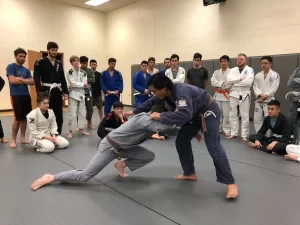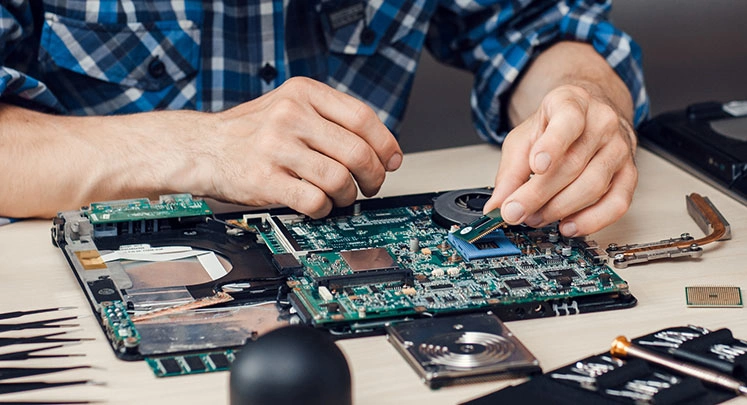In the world of Jiu Jitsu training, diversity is a pressing issue that needs attention. Jiu Jitsu, originating from Brazil, has traditionally been dominated by a specific group. But as the sport gains popularity, inclusivity and representation are becoming more important.
This article explores the relationship between politics and diversity in Jiu Jitsu training. By analyzing the impact of political factors such as government policies, institutional practices, and societal attitudes, we gain valuable insights into the challenges and opportunities in creating a more diverse Jiu Jitsu community.
Additionally, this article sheds light on the experiences of marginalized individuals, highlighting the barriers they face and the strategies they employ to bring about change.
Through this exploration of the intersection between politics and diversity in Jiu Jitsu training, our goal is to develop strategies for fostering a more inclusive and equitable environment for all practitioners.
Key Takeaways
- Jiu Jitsu training has traditionally been dominated by a specific group, but the importance of inclusivity and representation is increasing.
- Government policies, institutional practices, and societal attitudes all influence the diversity and inclusivity within the Jiu Jitsu community.
- Marginalized individuals face barriers and employ strategies for change, and it is important to develop strategies for a more inclusive environment.
- Promoting diversity and inclusivity in Jiu Jitsu academies can be achieved through diversity training, active recruitment and support of underrepresented groups, and creating a sense of belonging for individuals from different backgrounds.
The Significance of Diversity in Jiu Jitsu Training
The significance of diversity in Jiu Jitsu training lies in its ability to promote inclusivity, cultural exchange, and a well-rounded learning experience for practitioners.
Jiu Jitsu is a martial art that originated in Japan, but it has since spread around the world, attracting practitioners from diverse backgrounds. When individuals from different cultures and walks of life come together to train, it creates an environment that fosters understanding and appreciation for different perspectives.
This diversity enhances the learning experience as practitioners can learn from each other’s unique techniques, strategies, and approaches to the sport. Additionally, training with individuals from diverse backgrounds helps to break down barriers and promote inclusivity within the Jiu Jitsu community.
This creates a sense of belonging and camaraderie among practitioners, fostering a supportive and welcoming environment for all.
Understanding the Role of Politics in Shaping Diversity
Politics plays a crucial role in shaping the diversity of Jiu Jitsu training. When we talk about diversity in Jiu Jitsu, we are not just referring to physical attributes or skill levels. We are also talking about the representation and inclusion of individuals from different backgrounds, cultures, and perspectives.
Politics, in this context, refers to the power dynamics, policies, and decisions that influence who gets access to Jiu Jitsu training and who does not. It is through politics that opportunities are created or limited, resources are allocated, and voices are heard or marginalized.
Understanding the role of politics in shaping diversity allows us to critically examine the structures and systems in place, identify barriers and biases, and work towards creating a more inclusive and equitable Jiu Jitsu community.
Challenges Faced by Diverse Practitioners in Jiu Jitsu Training
What are the challenges faced by diverse practitioners in Jiu Jitsu training?
- Limited representation: Diverse practitioners may struggle with a lack of representation within the Jiu Jitsu community, which can make it difficult for them to find role models or feel a sense of belonging.
- Stereotyping and bias: Diverse practitioners may encounter stereotypes and biases based on their race, gender, or other factors, which can lead to unfair treatment or exclusion.
- Cultural barriers: Different cultural backgrounds may bring unique challenges, such as language barriers or unfamiliarity with certain training customs or etiquette.
- Unequal opportunities: Diverse practitioners may face unequal opportunities for advancement, such as access to higher-level training or competition opportunities.
- Microaggressions and discrimination: Diverse practitioners may experience microaggressions or overt discrimination, which can create a hostile training environment and hinder their progress.
It is important for the Jiu Jitsu community to address these challenges and create an inclusive environment that embraces diversity, providing equal opportunities and support for all practitioners.

Promoting Inclusivity and Diversity in Jiu Jitsu Academies
To foster an inclusive and diverse environment in Jiu Jitsu academies, it is crucial to implement strategies that promote equal opportunities for all practitioners.
Creating a sense of belonging for individuals from different backgrounds and identities is essential in ensuring that everyone feels welcomed and valued within the community.
One way to promote inclusivity is by providing diversity training for instructors and staff members. This training can help them understand and address unconscious biases, as well as learn effective communication techniques that encourage participation and collaboration among all students.
Additionally, academies can actively recruit and support underrepresented groups, such as women, people of color, and individuals from low-income backgrounds, by providing scholarships, mentorship programs, and community outreach initiatives.
Strategies for Creating a Diverse and Welcoming Training Environment
In order to create a diverse and welcoming training environment in Jiu Jitsu, it is important to implement effective strategies. Here are five strategies that can help promote diversity and inclusivity in Jiu Jitsu training:
- Education and Awareness: Provide education and awareness about the importance of diversity and inclusion in Jiu Jitsu. This can include workshops, seminars, and guest speakers who can share their experiences and perspectives.
- Diverse Leadership: Ensure that the leadership within the Jiu Jitsu community is diverse and inclusive. Having leaders from different backgrounds can help create an environment where everyone feels represented and valued.
- Open Communication: Foster an environment of open communication where individuals feel comfortable expressing their thoughts, concerns, and ideas. Encourage dialogue and create channels for feedback and suggestions.
- Community Outreach: Engage with the local community and actively reach out to underrepresented groups. Offer scholarships or discounted rates to make Jiu Jitsu more accessible to individuals who may face financial barriers.
- Zero Tolerance for Discrimination: Establish and enforce a zero-tolerance policy for discrimination, harassment, and bullying. This sends a clear message that such behavior will not be tolerated and creates a safer and more welcoming training environment for everyone.
The Benefits of Diverse Jiu Jitsu Training for All Practitioners
Diverse Jiu Jitsu training offers numerous advantages for practitioners of all backgrounds and skill levels. By training with individuals from different backgrounds, practitioners have the opportunity to learn from a wide range of experiences and perspectives. This exposure to diversity can lead to a deeper understanding and appreciation of different cultures, fostering a sense of inclusivity within the Jiu Jitsu community.
Additionally, training with individuals of varying skill levels can greatly enhance one’s own development. Practitioners can learn new techniques and strategies from more experienced individuals, while also providing guidance and support to those who are just starting out.
The benefits of diverse Jiu Jitsu training extend beyond the physical aspects of the sport, promoting personal growth, empathy, and a sense of belonging within the Jiu Jitsu community.
Frequently Asked Questions
How Does Diversity in Jiu Jitsu Training Contribute to the Overall Growth and Development of Practitioners?
Diversity in jiu jitsu training contributes to the overall growth and development of practitioners by providing a rich and varied learning experience. It fosters inclusivity, respect, and understanding, allowing individuals to learn from different perspectives and techniques, ultimately enhancing their skills and knowledge.
What Are Some Specific Examples of How Politics Can Shape Diversity in Jiu Jitsu Training?
Politics can shape diversity in jiu jitsu training in various ways. For example, funding and resource allocation can determine access to training facilities and opportunities. Additionally, policies and regulations may influence the inclusion of underrepresented groups in the sport.
What Are Some Common Challenges That Diverse Practitioners May Face in Jiu Jitsu Training and How Can They Be Addressed?
Diverse practitioners in jiu jitsu training may face common challenges such as prejudice, discrimination, and exclusion. These issues can be addressed through implementing inclusive policies, promoting cultural awareness, and fostering a supportive and respectful training environment.
What Are Some Effective Strategies That Jiu Jitsu Academies Can Implement to Promote Inclusivity and Diversity?
Jiu Jitsu academies can promote inclusivity and diversity by implementing effective strategies such as offering scholarships or discounted rates for underrepresented groups, creating mentorship programs, and fostering a welcoming and supportive environment for all practitioners.
How Can a Diverse and Welcoming Training Environment Benefit All Practitioners, Regardless of Their Background or Experience Level?
A diverse and welcoming training environment in Jiu Jitsu can benefit all practitioners, regardless of background or experience level, by fostering understanding, cultural exchange, and promoting growth through exposure to different styles and perspectives.
Conclusion
In conclusion, the push for diversity in Jiu Jitsu training is an ongoing process that requires a deep understanding of the role politics play in shaping inclusivity. By examining the impact of political factors on the sport, we can better address the challenges faced by marginalized groups and work towards creating a more diverse and welcoming training environment.
The benefits of diverse Jiu Jitsu training extend to all practitioners, fostering growth, understanding, and a more equitable community.
You May Also Like:






